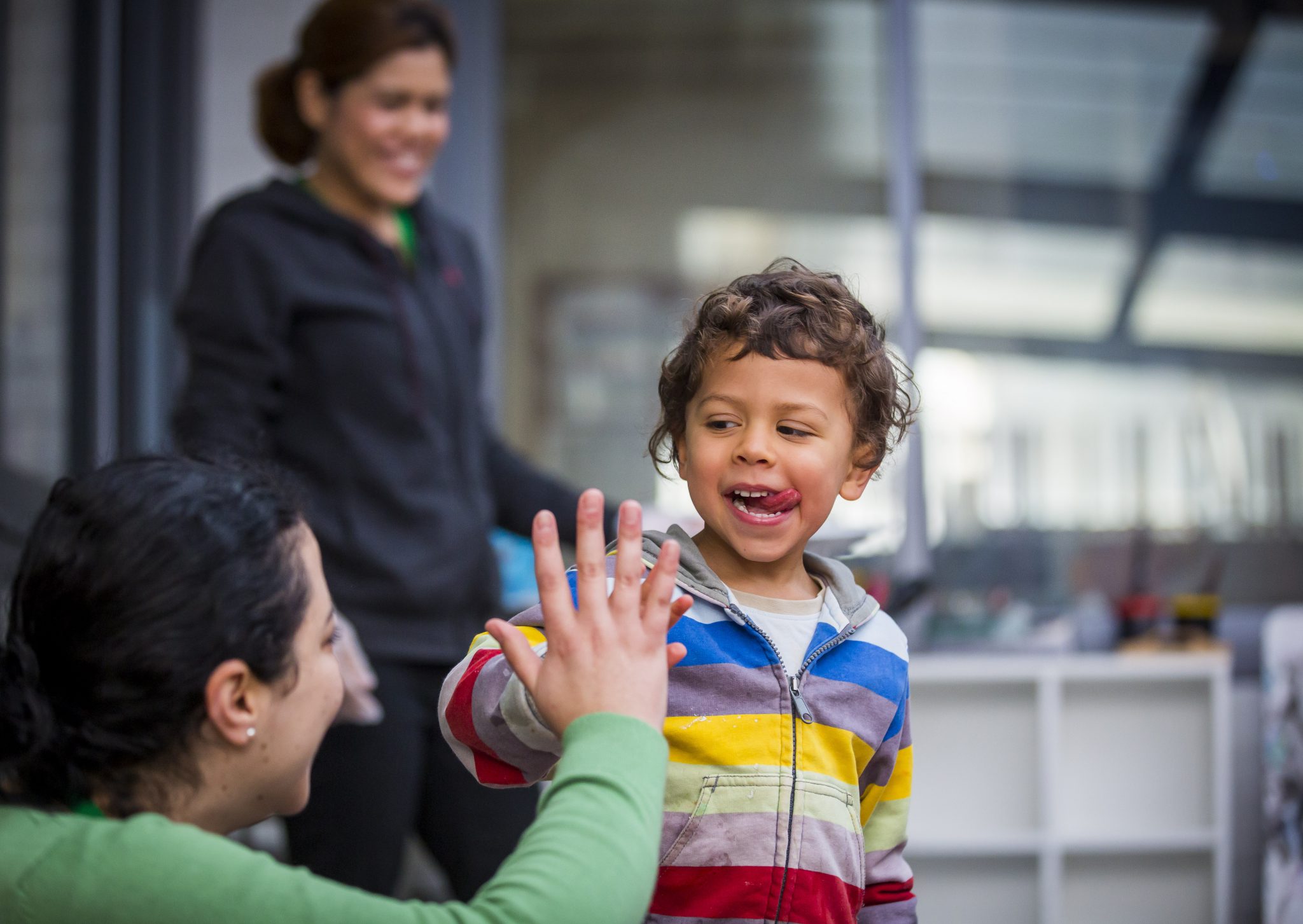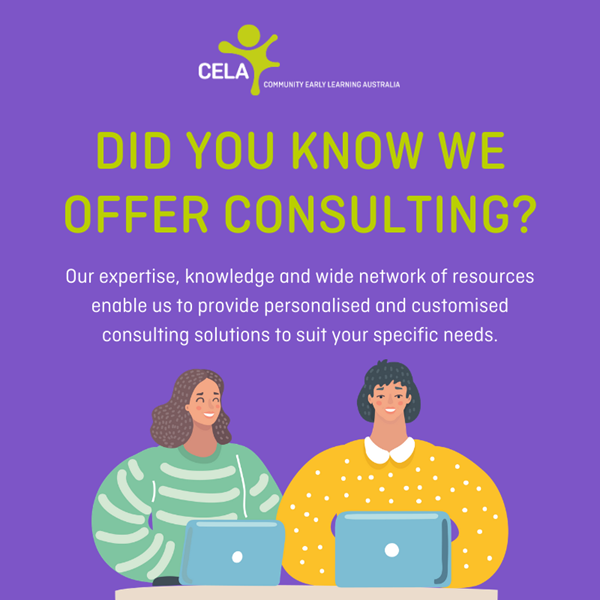Beth Sebesfi is an early childhood teacher and mother of three daughters aged 6, 4 and 2. From time to time she shares with us the professional insights arising from her personal experiences with children at work and home.
Today’s story is a reflection on the impact of a surprise ‘double diagnosis’ of giftedness and dyslexia for her oldest daughter, and how it made her value the positive impact early educators and teachers can have for families and children in a similar position.
A reflection by Beth Sebesfi
The welcome words of our first diagnosis
When my eldest daughter Chloe was three we received our first official diagnosis; one I accepted with pride, and a hint of first-time mum smugness.
Chloe was gifted.
Chloe picked things up quickly. Her language was ridiculously advanced. Her socio-emotional reasoning was mind-blowing. Chloe could explain the seasons, the water cycle, find Italy on a map… She was a gymnastics prodigy by four, amazing with numbers and letters and just so kind.
It was only days later that a well-meaning friend smiled knowingly, and laid what would be the first cushioning reassurance at my feet; “Giftedness rarely comes alone. No matter what, she’s perfect”.
Of course, she was. And thank you very much for noticing.
Then school started.
“Sometimes the bright ones can’t find their own noses!”
And base testing happened.
“Sometimes they’re just nervous. Don’t worry too much, she’ll catch up!”
And the home readers stagnated.
“Maybe the giftedness was… an Adelaide thing?” (we had moved interstate prior to Chloe starting school).
I watched my confident little superstar’s shine start to dim.
I watched her retreat.
I watched her refuse to try the monkey bars because she might fall.
I watched her guessing at words she knew by reading the pictures.
I watched her try and try and try again to guess at sight words, getting it once and immediately forgetting.
A second diagnosis brings relief
I found myself becoming frustrated and impatient.
She was getting it… she just really had to work for it. I saw her love of reading approaching a crossroads.
I needed to say what I was thinking out loud.
I made an appointment and a week later, we had our answer.
Dyseidetic dyslexia1.
This is wonderful!” I told her, holding her fear so closely myself, “We’re going to figure out how you learn and then reading is going to be fun again!
The challenge that comes with being ‘twice exceptional’
Children who are ‘twice-exceptional” are at extreme odds with mainstream schooling. With both accelerated and impeded ability, these children can often seem to be lazy, difficult, obstructive or disruptive; wasting their obvious potential because they really should be achieving more.
Chloe rarely challenges her teachers. She just, sort of, loses interest.
Had I not gone looking for answers, Chloe would likely have done ok at school. She would have found ways to mask her challenges and slipped quietly under the radar for a while, then ‘underperformed’ in later schooling.
As she fought to decode every word, likely working twice as hard in the same span of time, consciously needing to seek and retrieve every syllable from a path she’d instinctively divert from, and likely tiring quickly, her teachers would probably see her as distractible.
I’d never heard of this type of ‘dyseidetic’ dyslexia. And as I’ve discovered, neither have most other people. It’s not just jumping letters and coloured paper; this was unfamiliar, and new, and totally at odds with how we were trying to teach.
Giftedness rarely comes alone, but the path it leads down can be so lonely.
To teach Chloe I need to unlearn so many things. I need to stop pulling her down the path I know, and use this new understanding as the map we write together.
In 2014, an investigation by Ronksley-Pavia estimated that between 10% to 40% of Australia’s gifted children are ‘twice exceptional’, paradoxical presentations of traditional brilliance coupled with a challenge that seems implausible. We need to meet them, to teach all aspects of who they are.
This is yet another reason we need to focus on the formative years of Early Childhood Education.
The difference early childhood educators can make cannot be understated
Good early childhood educators and teachers are professionals who focus on strengths. They develop a tailored curriculum that embraces what children can do. They do not believe in standardised anything, because there is no such thing as a standard brain. They partner with families in authentic alliances, seeking and hearing the child’s voice, reflecting and reframing our practice holistically.
.jpg?width=600&height=425)
They do not wait for a diagnosis to create individual learning goals. They focus on the individual from the moment they meet them. They seek diverse perspectives, they sit with uncertainty. They allow time for children to grow in their own place and space. They build a curriculum around the child, they never bend the child to fit the curriculum.
We know that many critical periods in brain development close by five years.
The difference early childhood education can make for children like Chloe cannot be understated.
We still read every night, we use flashcards and sight words and all sorts of other forbidden tactics to unlock the pathways in Chloe’s wonderful mind. I’m prepared to veer off course, and thankfully Chloe’s incredible teachers have agreed to come along for the ride.
Giftedness rarely walks alone, and we’re going to make sure Chloe never has to.
|
1According to the Davis Dyslexia Association International, people with ‘dyseidetic’ dyslexia generally have a good grasp of phonetic concepts, but great difficulty with whole word recognition and spelling. This type of dyslexia may also be labelled as “surface,” “visual,” or “orthographic.”
Typically, they will spell in a way that words can be easily deciphered phonetically, but which may be very far from being correct.
For example, the word ‘phonics’ might be spelt ‘foniks.’ It is also common to see transpositions and even sometimes complete reversals in spelling (such as the word ‘need’ being written ‘deen’) – but the letters that correspond to the right sounds are all there.
|

CELA’s expert child care and early education service consultants have helped many new and existing providers across Sydney and Australia-wide to achieve success.